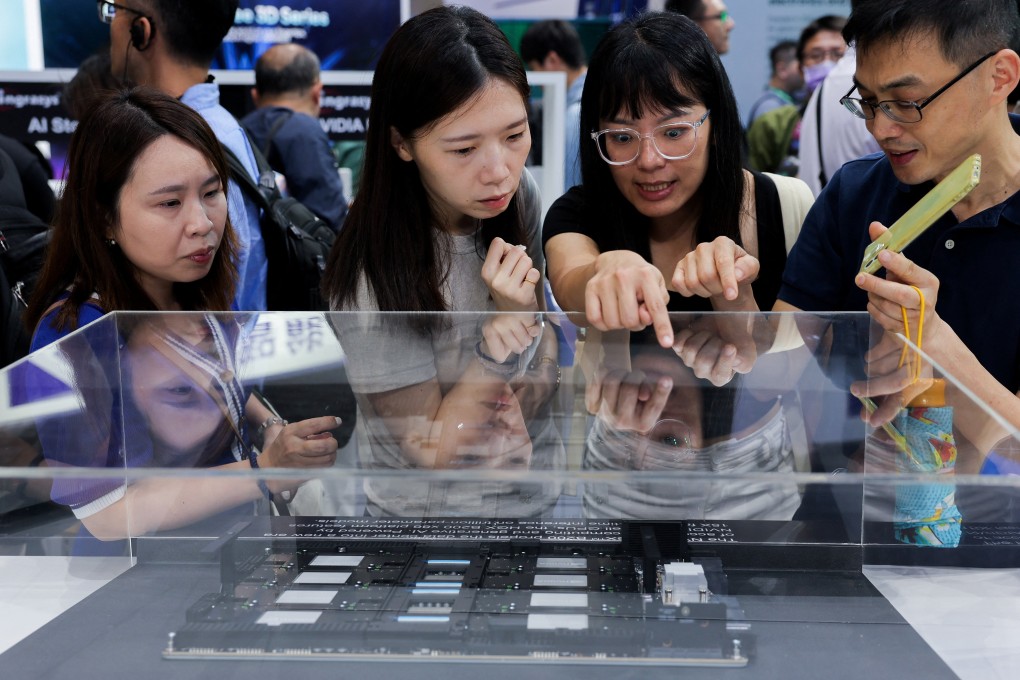AI computing pushes Taiwan’s geopolitics-weary tech sector into party mode
- Taiwan’s trade data already reflects rising global popularity of AI-optimised consumer electronics – a point hammered home at the Computex Taipei trade show

Taiwan’s tech firms, suppliers of the world’s PC and smartphone hardware, have racked their brains for the past half-decade about how to steer clear of the US-China trade war and festering cross-Strait political problems.
This year, they’re feeling oddly festive.
Though geopolitical issues are hardly resolved, surging global interest in artificial intelligence (AI) PCs has rippled down Taiwan’s iconic US$130 billion tech supply chain – from computer developers to the builders of small parts such as chips and fans.
Taiwan has a complete suite of components and equipment to build these devices, as well as the global recognition that its supply chain will react to widespread consumer demand, according to people in the tech sector.
“You can see AI is still booming, and AI PC makers are trying to prepare,” said James Hsieh, assistant vice-president of AcBel Polytech. His firm makes power supplies and he has a 300-watt model that he believes will best handle increased power for AI computations such as GPT commands.
“I have to gather some research for marketing, otherwise we are out of date,” he said.
